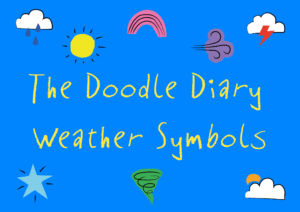Toxic Positivity: Can you be too positive?

Can you be too positive? Read on to find out about Toxic Positivity, how it can harm us and what you can do to avoid it.
We may be The Positive Planners but don’t expect us to be bright and happy all the time. That’s just not us and it’s just not real. In fact, Toxic Positivity is a thing and more and more people are talking about how it can be harmful to our mental health as well as our relationships with ourselves and others. After a challenging year where we’ve heard ‘it is what it is’ and ‘positive vibes only’ quite a lot, we thought it would be good to put a spotlight on Toxic Positivity and find out exactly what’s so harmful about always looking on the bright side.
WHAT IS TOXIC POSITIVITY?
We all know the benefits of thinking positive, don’t we? Studies have shown for a long time that trying to see the positive in life can and does give us huge benefits. It’s a cornerstone of what we at The Positive Planners believe in, but despite this, you can take it too far.
Toxic Positivity is essentially fake positivity. It’s responding to negativity with optimism at all costs. It’s forcing yourself to act cheerful when we’re clearly not. And there’s a double whammy - it comes in two forms, from other people but also ourselves.
FORMS OF TOXIC POSITIVITY
Whilst you might not know the term Toxic Positivity, we’re sure you’ve been at the receiving end of it. Whether that's from yourself or a well-meaning friend or loved one. Here are some examples you might have experienced:
- This year has been a big one for Toxic Positivity. A new lockdown? Phrases like ‘Look on the bright side!’ or ‘It’ll be OK. There’ll be more time for baking banana bread!’ seem to have been everywhere. This might come from a place of love and is meant to be sympathetic, but what it actually does is invalidate your feelings. It shuts down emotions and the chance to talk about them.
- You experience a loss, perhaps a job through the pandemic. A common response to this is to be ‘philosophical’ saying ‘everything happens for a reason.’ It’s meant to be comforting but it avoids your pain and ability to express it.
- You're going through disappointment or sadness and tell yourself to pull yourself together. A classic is to say to yourself 'Today I choose to be happy and stop dwelling on things'. This kind of self-talk tells us that feeling sad and negative is a choice and that we can and should snap out of it.
WHY IS TOXIC POSITIVITY BAD FOR US?
In these challenging times some of us have tried our hardest to save face, keep our chin up and send out ‘positive vibes only'. Of course, disregarding any authentic feeling or pushing unpleasant emotions down is unhealthy in the long-run.
Research shows that talking about emotions, including negative ones, may help the brain better process feelings. A study found that labelling and talking about emotions reduced the strength of certain brain pathways associated with those emotions. This finding suggests that talking about feelings may make them feel less overwhelming.
Here are a few reasons why Toxic Positivity is bad for us:
It encourages feelings of shame about our feelings and struggles. We start to keep quiet, believing our feelings are wrong while everyone else in our eyes is coping. How honest are you about how you’re feeling? It can be a real eye-opener to journal about this. Why not ask yourself these questions?
‘If anyone knew __________ about me, what would they think?’ or ‘I wouldn’t want the world to know __________ about me.’
If you can fill anything in the gaps, you’re experiencing some form of shame. Researcher and storyteller Brené Brown defines shame as “the intensely painful feeling or experience that we are flawed and therefore unworthy of acceptance, connection or belonging.” While every one of us experiences shame at some point, we should do all we can to limit the impact it has on our lives.
It suppresses our emotions which leads to more stress on the body and/or increased difficulty avoiding the distressing thoughts and feelings. Swallowing and not talking about our feelings allows them to become buried deep within our bodies. Short-term this might not be an issue, but over time suppressed emotions can manifest in anxiety, depression or even physical illness.
It causes isolation and communication issues. At The Positive Planner we believe in living authentically with ourselves and the world around us. No matter how ugly that may be sometimes. If we aren't honest with ourselves and those around us, we make it almost impossible to truly connect and relate to others. Added to that, being around people who are upbeat and happy all the time makes us feel we can’t be honest.
We can ignore real problems and dangers. A narrative review from 2020 looked at the relationship between positive attitudes in the context of domestic abuse and found ‘an optimistic bias can put victims in danger; empathy, hope, acceptance and resilience are associated with refraining to leave abusive relationships; and forgiveness increases the likelihood of further transgressions.’
HOW TO AVOID TOXIC POSITIVITY
We’re all guilty of trying to be too positive at times and it’s perfectly natural. After all, holding on to hope helps us when the going is tough. In fact, there have been quite a few ‘it is what it is’s’ in our Positive Planner Zoom meetings over the last year! But we try to practice what we preach. So we’re keeping an eye on it and working to be as authentic and honest with each other as we can be!
If Toxic Positivity is starting to look familiar, take a look at these strategies you can use to avoid it.
How to avoid self-imposed Toxic Positivity:
- Take a leaf out of our Positive Doodle Diary and identify and name your emotions rather than avoiding them. You could even use our weather symbols.
- Get to know your emotions and look to see if you can find patterns in your behaviour. Journaling is a great way to do this, as is mood tracking (you’ll find mood trackers in The Positive Planner, The Positive Wellness Journal and The Positive Bullet Diary or you can download our free Mood + Habit Tracker in our Resource Library here).
- Be authentic and honest and talk about your emotions, including the negative ones, with people you trust.
- If you feel you need support, look to those who won’t judge you like close friends or even a therapist.
- See that negative emotions are a normal part of life. They are crucial to the human experience.
You can avoid imposing Toxic Positivity on other people by:
- Trying not to have a super positive response to everything a person says.
- Allowing yourself to become comfortable with negative thoughts and emotions.
- Encouraging people around you to be open about how they are feeling.
- Learning that big negative emotions are often indicative of big positive ones. For example, intense grief shows the intense love that you felt.
A final note:
Emotions are there to help us make sense of things in our lives. We shouldn’t ignore them or dampen them down so that we can be seen as upbeat. At The Positive Planner we believe in treating emotional needs with compassion and riding the wave of low periods of mental health and perhaps planning self-care and acts of joy into our schedules to help lift our spirits. It’s so important to acknowledge our feelings and dispel this notion of staying positive at the cost of our own wellbeing.
The phrase ‘It’s OK to not be OK’ has never been more fitting than it is today. Now more than ever we should be taking care of our needs and acting on them to help us be the best versions of ourselves.
Al the love and positive vibes,
Ali + Finn xxx






No comment yet, add your voice below!